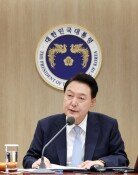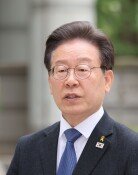Enhanced S. Korea-U.S. coordination is needed
Enhanced S. Korea-U.S. coordination is needed
Posted July. 06, 2019 07:36,
Updated July. 06, 2019 07:36
North Korea has reportedly conveyed its wish to discuss the nuclear issue directly with the United States without South Korea’s mediation to U.S. Special Representative for North Korea Stephen Biegun. This signifies the North’s intention to no longer rely on South Korea for mediating nuclear negotiations. As they could peep into Washington’s negotiating cards at the Hanoi summit and even more at the latest Panmunjom summit, Pyongyang seems to be trying to take the matter into its own hands. In a sense, this indicates the continuation of North Korea’s long-standing stance that it will directly deal with the United States, pushing South Korea aside.
President Trump said that he will not rush into the nuclear talks, but ahead of the U.S. presidential election next year and considering North Korea’s internal circumstances, both sides are highly likely to speed up the negotiations. Trump, who has now kicked off his second presidential campaign, is pressed to present visible diplomatic achievements. In the meantime, North Korean leader Kim Jong Un would also need to have economic sanctions lifted to yield the positive outcome of the country’s five-year economic development plan, which is to expire in 2020.
If North Korea directly talks with the United States one on one, the negotiation may develop toward a direction South Korea has not expected. In fact, there are voices within the U.S. government and the people suggesting a possibility of the two sides striking a deal. Speculation is that they would make a compromise, allowing North Korea to freeze its nuclear programs and then to be acknowledged as a nuclear state. Trump will be able to frame this as his diplomatic achievement, calling it the elimination of North Korea’s nuclear threats. Several officials within the Trump administration are apparently calling for the path, regarding it as a realistic option they can choose when complete denuclearization is considered too ambitious. Kim may be aware of this and aims to use the sentiment to its advantage by excluding South Korea in future nuclear talks.
South Korea, being a country most affected by North Korea’s nuclear threats, should not let itself be left out of the denuclearization talks. Even if North Korea and the United States should hold bilateral negotiations for improved efficiency, South Korea and the United States should coordinate as one team in preparing and sharing the results. Seoul must not allow the ultimate goal of completely destroying the North’s nuclear systems to get lost while the two sides strive to reach a bilateral deal. If excluded, South Korea may have to find itself only taking up burden, without any diplomatic achievements to present. Now is the time for the government to make more active efforts to strengthen coordination between Seoul and Washington.
Headline News
- Israel prepares for retaliation against Iran
- Samsung reclaims top spot, surpassing Apple in smartphone market
- 77% of Koreans in 20s and 30s are 'Kangaroo Tribe' due to job crisis
- KBO referees embroiled in controversy over ABS decision concealment
- Inflation, oil price surge put double shock on global economy







